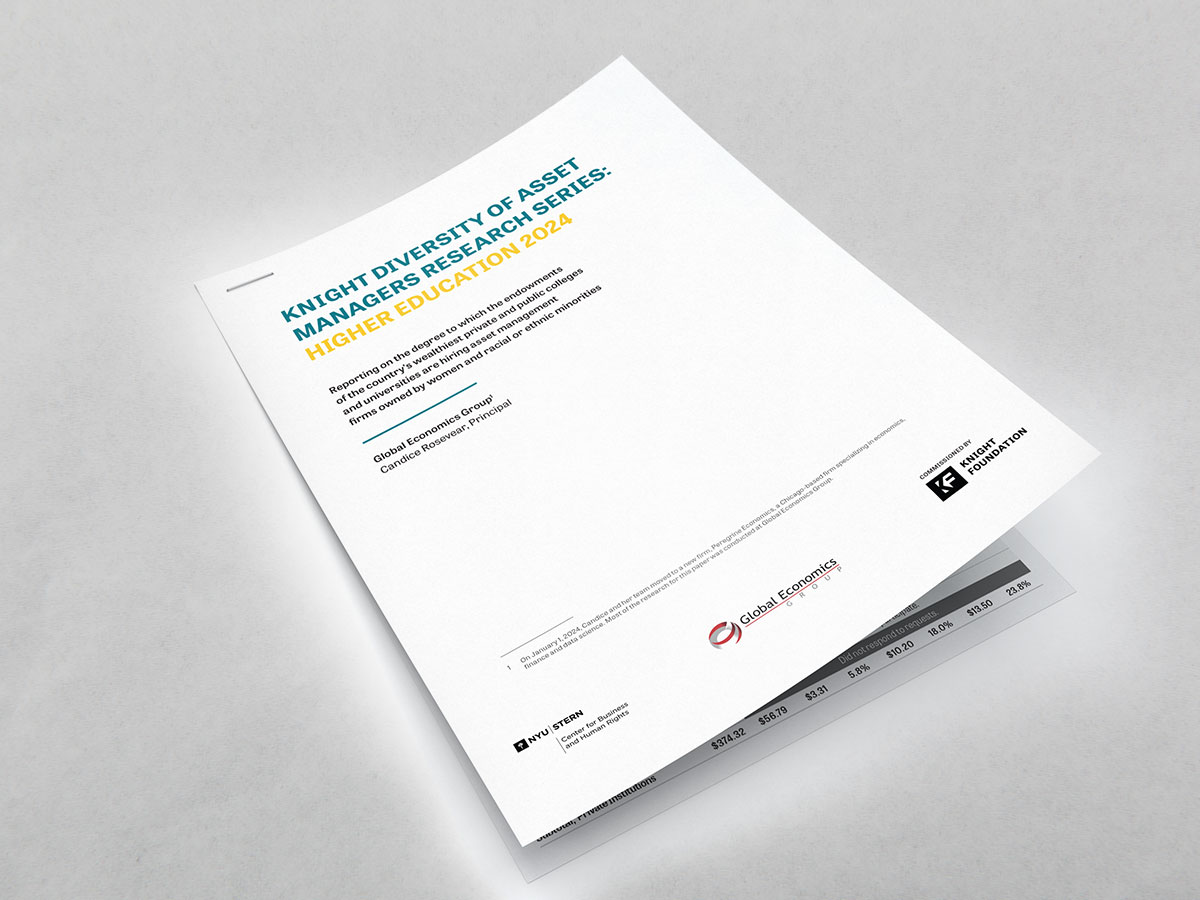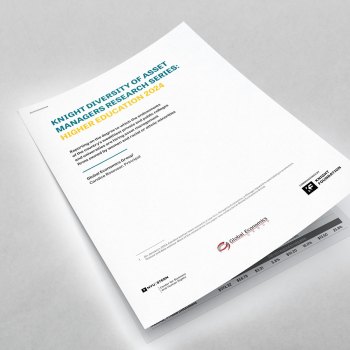Global Economics Group, Knight Foundation and the Center for Business and Human Rights at New York University’s Stern School of Business (NYU CBHR) collaborated to conduct this study and produce this paper. It is a continuation of the 2022 interim paper on the degree to which the endowments of the 25 wealthiest private and 25 wealthiest public higher education institutions hire investment firms owned by women and racial or ethnic minorities (“diverse-owned firms”).1 This paper builds on the interim paper with additional and updated data.
The institutions’ endowments collectively hold $566 billion in total assets, more than two-thirds of the nation’s higher education endowment dollars. In addition to vast financial capital, these endowments support the operations of some of the most socially influential institutions in the country and hold potential to exert influence through their investment decisions.
Participation in the study is voluntary. Of the 50 invited institutions, 18 fully participated in the study by providing their asset manager rosters for independent analysis or by making their rosters publicly available, 8 self-reported their summary statistics, and 24 did not participate at all. Given that slightly more than half of the invited institutions contributed to this study, and only 18 provided full data for independent analysis by Global Economics Group, the study findings are not necessarily representative of the whole.
Notably, six public institutions participated in the study after receiving a public records request from the Knight Foundation’s lawyers.2 As there is no equivalent public records process for private institutions, we consistently reached out to them for participation. Despite these efforts, only two additional private institutions engaged with us beyond the interim paper.3
Footnotes
- By “diverse-owned,” we mean 50% or more of a firm’s equity ownership is held by women and/or racial/ethnic minorities; similarly, “women- owned” or “minority-owned” means a firm has 50% or greater representation by women or racial/ethnic minorities. We include only U.S.-based firms because we define a “minority” as is typically defined from the perspective of the United States. See Appendix A for details on definitions and methodology. ↩︎
- The Freedom of Information Act (“FOIA”) gives the public the right to request access to certain government records at the federal level. Each state has its own public records law for its state agencies and actors, including public universities. The institutions that participated after receiving a public records request are The Ohio State University, University of Minnesota, University of Iowa, University of Nebraska, University of Michigan, and University of Washington. ↩︎
- They are Northwestern University and University of Southern California. ↩︎


